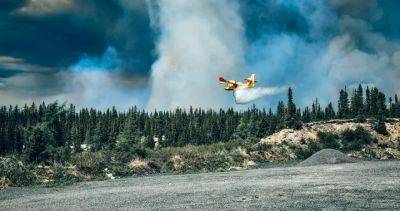Report by Deloitte suggests emissions cap not possible without oil, gas production cuts
Canadian oil and gas companies facing a federally imposed emissions cap will decide to cut their production rather than invest in too-expensive carbon capture and storage technology, a new report by Deloitte says.
The Alberta government-commissioned report — a copy of which was obtained by The Canadian Press — aims to assess the economic impact of the proposed cap.
Its findings contradict the federal government’s stance that its proposed cap on greenhouse gas emissions from the oil and gas sector would be a cap on pollution, not a cap on production. And it supports Alberta’s position that a mandated cap would lead to production curtailments and severe economic consequences.
But the Deloitte report also casts doubt on the idea that widespread deployment of carbon capture and storage technology will drive down emissions from the oil and gas sector in the coming years, suggesting that scenario doesn’t make financial sense.
“We expect that the cap (will impose) 20 megatonnes in emissions reduction on producers by 2030, which will need to be achieved by CCS (carbon capture and storage) investments, or through production curtailment,” the Deloitte report states.
“Curtailing production would be a more cost-effective option compared to investing in CCS.”
The oil and gas sector is Canada’s heaviest-emitting industry, and rising oilsands production has meant total emissions from the sector are increasing at a time when many other sectors of the economy are successfully reducing overall emissions.
Globally, oil demand is growing, with the International Energy Agency forecasting global oil demand to be 3.2 million barrels per day higher in 2030 than in 2023, though the agency also suggests growing supply will outstrip demand growth




